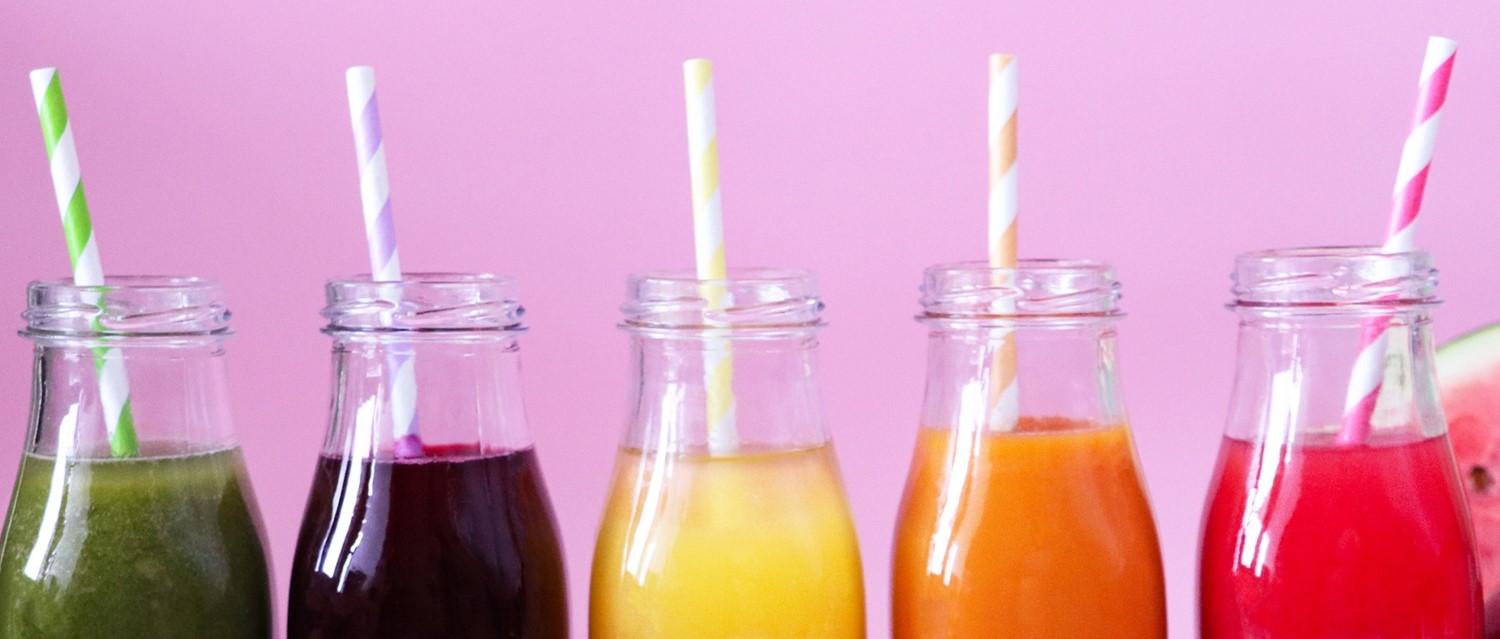
Juice: Is juicing fruits and vegetables good for us?
Peer reviewed by Dr Krishna Vakharia, MRCGPAuthored by Lydia SmithOriginally published 8 Nov 2023
Meets Patient’s editorial guidelines
- DownloadDownload
- Share
- Language
- Discussion
Colourful juices line the shelves of our favourite cafes, promising benefits from better digestion to clearer skin. But is drinking our fruits and vegetables really better for us than just eating them whole?
In this article:
Juicing - extracting the nutritious juices from fresh fruits and vegetables - has become increasingly popular in recent years.
Usually, juicing gets rid of the solid matter, such as the pulp, and leaves the liquid behind - which contains vitamins, minerals and antioxidants. Antioxidants are substances that may protect your cells against free radicals, which may play a role in heart disease, cancer and other diseases.
Continue reading below
Benefits of juicing
Vitamins and minerals
When you’re in a rush or on the move, drinking a fresh juice can be more convenient than trying to peel an orange. Fruits and vegetables are full of vitamins, minerals and antioxidants, so drinking the juice can be a good way to add them to your diet - especially if you struggle to eat your 5-a-day.
One study found that supplementing your diet with mixed fruit and vegetable juice over 14 weeks improved levels of beta carotene, vitamin C, vitamin E, selenium, and folate, which are all important nutrients1.
Research also suggests that when consumed in moderation as part of a healthy diet, fruit juice is linked to improved cardiovascular health, reduced risk of stroke and reduced blood pressure2.
However, whilst drinking juice in moderation - as part of a healthy diet - may have some health benefits - drinking too much juice may lead to health issues because it tends to contain a lot of sugar.
Downsides of juicing
Missing fibre
When you make juice, you often lose the solid parts of the fruit or vegetable, which is where most of the dietary fibre is found. Fibre is essential for our digestive health, helps to lower cholesterol levels, controls your blood sugar levels3.
Therefore, eating fruits or vegetables whole - for example, snacking on a satsuma rather than having a glass of orange juice - is a better way to get more nutrients as well as fibre.
High in sugar
Fruit juice is often high in sugar. All fruit contains fructose, a type of sugar. However, juicing releases the sugars in fruit - making them ‘free’ sugars, the type we are advised to cut back on.
Also, because juice contains less fibre, the sugar is absorbed into the blood more quickly than if you were to eat a piece of fruit. This can lead to increased appetite and sugar cravings, which can lead to eating more sugar and increases your risk of obesity and type 2 diabetes.
Drinking too much juice can also lead to tooth decay4.
Extra calories
Juice is easy to consume in large quantities, which can mean you’re taking in extra calories, which can lead to weight gain.
Studies suggest that when you drink fruit juice, you do not eat less of other foods - so you may just end up consuming more calories than if you drank water5.
Continue reading below
Keeping juice healthy
Drinking juice can come with health benefits if you consume it in moderation - this is around 150 ml of juice per day. Also, how healthy a juice is depends on where it is from. Shop-bought juices may contain more sugar or other additives.
Blending fruits and vegetables - including the solid parts, like the flesh and seeds - into a smoothie may be a better way to up your nutrient intake without losing any fibre.
Juice recipes
Mixing up fruit and vegetables is a good way to cut down on your sugar intake. Use a juicer to blitz together apple, carrot and orange, or add in a handful of raspberries too.
Try a cucumber, apple and spinach juice for a morning pick-me-up, or a fresh ginger, apple and lemon juice for a vitamin boost with a kick.
Further reading
Patient picks for Nutrition

Diet and nutrition
10 essential nutrients you might be lacking
According to a study published by the Health and Food Supplement Information Service (HSIS), UK diets have become less healthy in the past 30 years. We chatted with health experts about 10 important nutrients you might be missing in your diet.
by Victoria Raw

Diet and nutrition
Health benefits of garlic
Garlic can do much more than just ward off vampires and add flavour to our meals. From protecting us against the common cold to lowering our blood pressure, current research suggests it may have some real health benefits too.
by Victoria Raw
Continue reading below
Article history
The information on this page is peer reviewed by qualified clinicians.
8 Nov 2023 | Originally published
Authored by:
Lydia SmithPeer reviewed by
Dr Krishna Vakharia, MRCGP

Ask, share, connect.
Browse discussions, ask questions, and share experiences across hundreds of health topics.

Feeling unwell?
Assess your symptoms online for free
Sign up to the Patient newsletter
Your weekly dose of clear, trustworthy health advice - written to help you feel informed, confident and in control.
By subscribing you accept our Privacy Policy. You can unsubscribe at any time. We never sell your data.